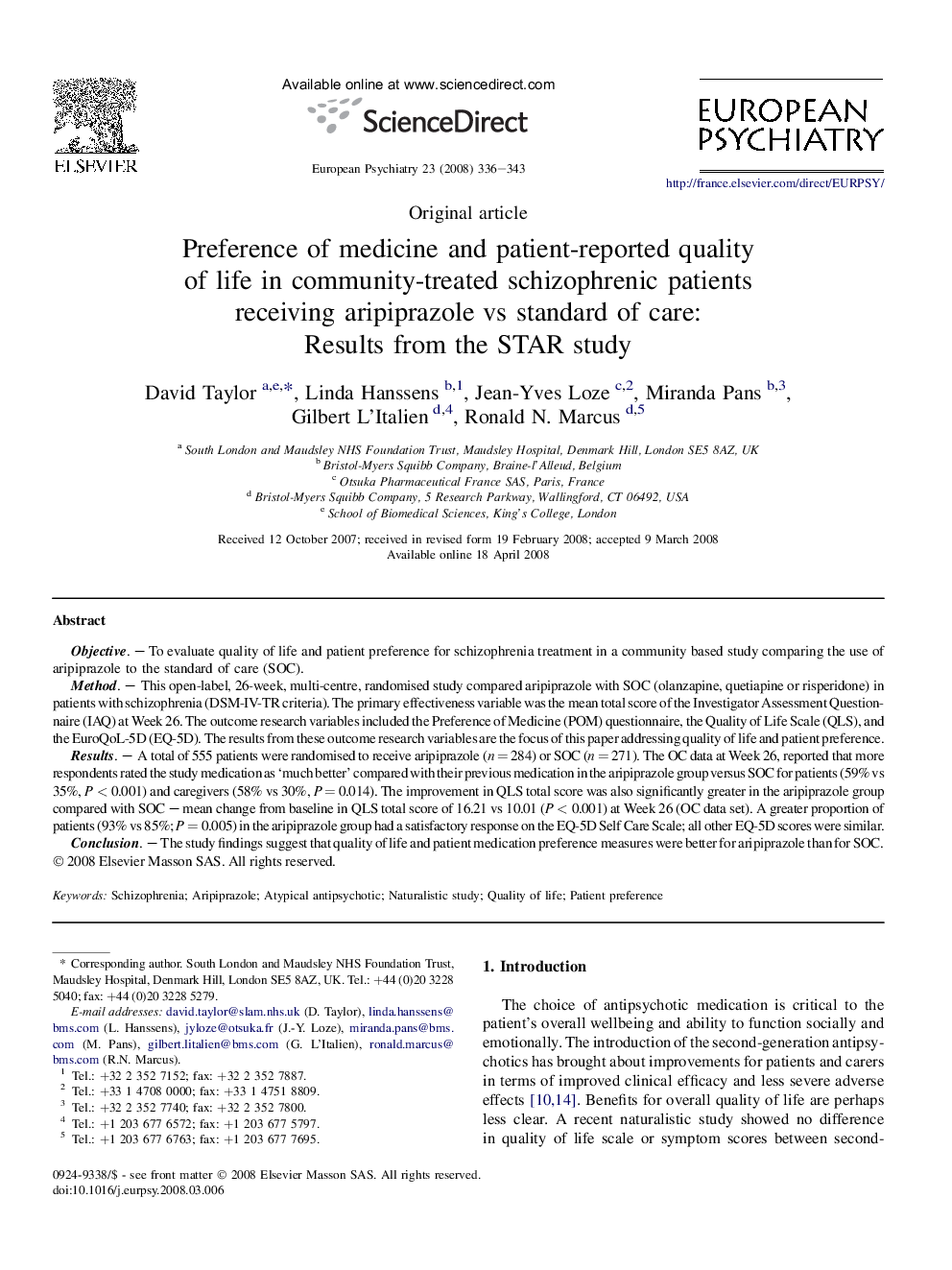| Article ID | Journal | Published Year | Pages | File Type |
|---|---|---|---|---|
| 4185174 | European Psychiatry | 2008 | 8 Pages |
ObjectiveTo evaluate quality of life and patient preference for schizophrenia treatment in a community based study comparing the use of aripiprazole to the standard of care (SOC).MethodThis open-label, 26-week, multi-centre, randomised study compared aripiprazole with SOC (olanzapine, quetiapine or risperidone) in patients with schizophrenia (DSM-IV-TR criteria). The primary effectiveness variable was the mean total score of the Investigator Assessment Questionnaire (IAQ) at Week 26. The outcome research variables included the Preference of Medicine (POM) questionnaire, the Quality of Life Scale (QLS), and the EuroQoL-5D (EQ-5D). The results from these outcome research variables are the focus of this paper addressing quality of life and patient preference.ResultsA total of 555 patients were randomised to receive aripiprazole (n = 284) or SOC (n = 271). The OC data at Week 26, reported that more respondents rated the study medication as ‘much better’ compared with their previous medication in the aripiprazole group versus SOC for patients (59% vs 35%, P < 0.001) and caregivers (58% vs 30%, P = 0.014). The improvement in QLS total score was also significantly greater in the aripiprazole group compared with SOC – mean change from baseline in QLS total score of 16.21 vs 10.01 (P < 0.001) at Week 26 (OC data set). A greater proportion of patients (93% vs 85%; P = 0.005) in the aripiprazole group had a satisfactory response on the EQ-5D Self Care Scale; all other EQ-5D scores were similar.ConclusionThe study findings suggest that quality of life and patient medication preference measures were better for aripiprazole than for SOC.
